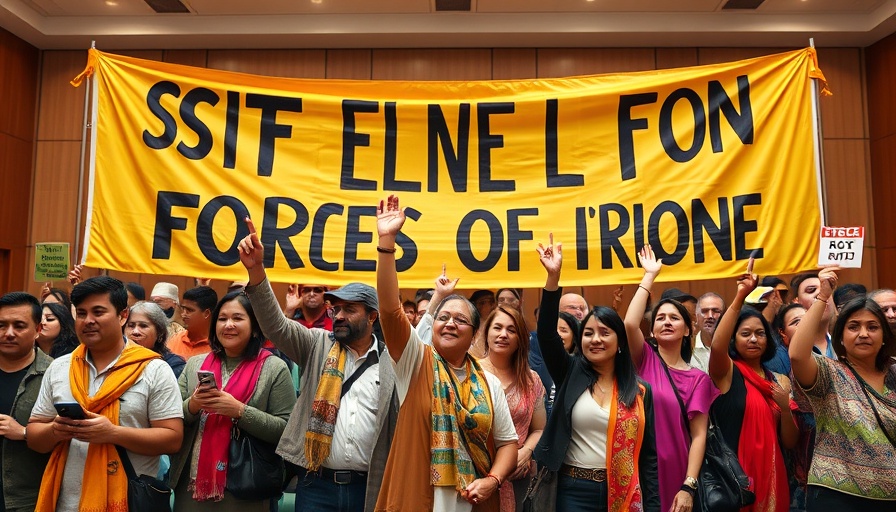
The Urgency for Corporate Accountability in Climate Action
As the world grapples with the escalating crisis of climate change, a recent report by Carbon Market Watch brings attention to some disheartening truths about corporate accountability. The study scrutinizes the decarbonization efforts of major players in sectors like fashion, technology, and automotive, revealing shocking discrepancies in their climate pledges and actual performances. This disparity spotlights a pressing need for regulatory oversight regarding corporate climate action—what can be done, and why is it essential?
Misleading Practices Mask Climate Inaction
A critical analysis shows that creative accounting and lax disclosure practices are allowing companies to paint an inaccurately rosy picture of their environmental impact. The report highlights that the likes of Shein, a fast fashion retailer, and Toyota are falling significantly short of their goals. Ironically, while corporations tout ambitious targets for reducing their carbon emissions, the reality is that many are relying heavily on questionable methods—like counting carbon credits and utilizing unsustainable solutions such as biomass. These tactics effectively obscure the true status of efforts aimed at achieving net-zero emissions by 2030, underscoring the need for transparent accounting processes.
The European Union's Role in Set Standards
Interestingly, the report notes that the top performers in corporate climate action are primarily EU-based firms. These companies adhere to the stringent Corporate Sustainability Reporting Directive (CSRD), which mandates detailed disclosures of environmental impacts. However, despite this regulatory framework, not a single company achieved a high integrity rating in its climate programs. Achieving a mere moderate rating indicates a systemic issue within corporate practices—suggesting that even when regulations exist, compliance alone may not ensure responsible environmental stewardship.
Regulation: A Necessary Shift in Corporate Mindset
Experts are calling for a paradigm shift where climate action is not merely a voluntary initiative but an integral aspect of corporate strategy. This shift would not just encourage companies to enhance their reporting practices but would fundamentally disrupt the culture of greenwashing—a term used to describe misleading claims about the environmental benefits of a product or a company’s practices. The importance of accurate disclosures cannot be overstated; they allow consumers to make informed choices that align with their values of sustainability and ethical consumption.
Moving Towards a Sustainable Future
Emphasizing the need for systemic change, the report advocates for the prioritization of transparent climate action as a business necessity. Regulation can create an incentive for companies to improve their corporate responsibility practices, thereby fostering an environment ripe for innovation and genuine sustainability initiatives. The call for action is not just about holding businesses accountable; it’s about aligning their operations with the global sustainability goals needed to combat climate change effectively.
Conclusion: Taking Steps Toward Ethical Business Practices
As eco-friendly readers and engaged citizens, understanding these issues is essential. Holding corporations accountable for their climate commitments means advocating for transparency and responsible practices. It empowers us as consumers to support businesses that genuinely contribute to a sustainable future. By choosing ethical products, promoting corporate accountability, and urging stronger regulatory practices, each of us can play a role in combating climate change and fostering a sustainable economy.
 Add Row
Add Row  Add
Add 



Write A Comment